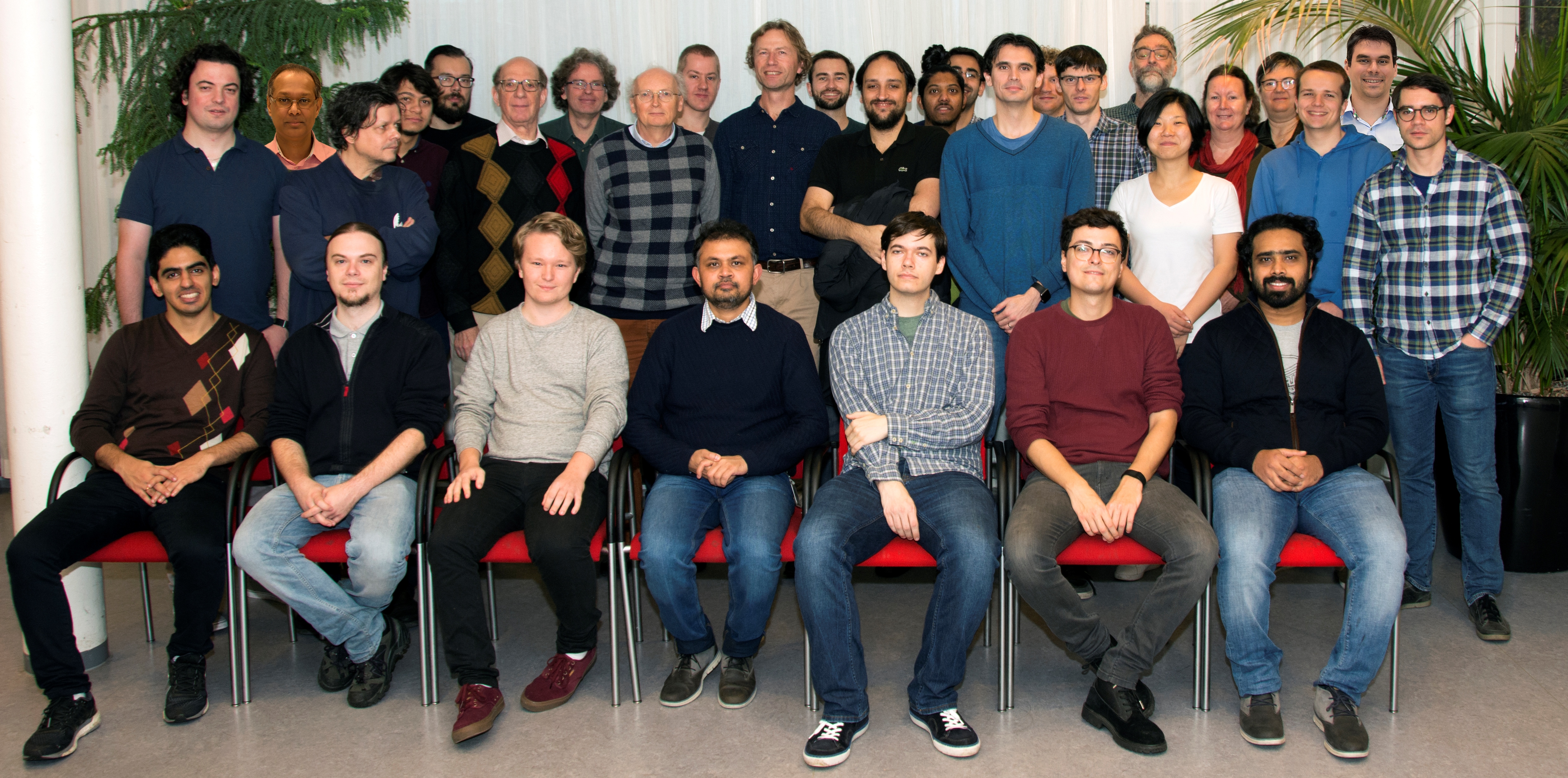Computer Systems
The Computer Systems group of the Vrije Universiteit, Amsterdam has been at the forefront of systems research for four decades. The group currently consists of three Full Professors (chairs), on High Performance Distributed Computing (Henri Bal), System and Network Security (Herbert Bos), and Massivizing Computer Systems (Alexandru Iosup). Prof. Andy Tanenbaum is formally retired but still contributes to our teaching. We publish papers in top conferences and journals, with a strong emphasis on high-impact research. We distribute widely-used open-source software, with MINIX as prime example, and routinely cooperate with big tech companies such as Microsoft, Google, Apple, Intel, and Philips for the real-world transfer and exploitation of our research results. We have high teaching standards, as evidenced by excellent student evaluations.
History
The group was established mid 1970’s by prof. Andy Tanenbaum and soon reached fame through his groundbreaking book “Structured Computer Organization” and by pioneering research on portable optimizing compilers (Amsterdam Compiler Kit), distributed operating systems (Amoeba), and parallel programming languages (Orca). The work on the famous MINIX operating system started around 1985; it inspired Linux, resulted in numerous award-winning PhD projects on reliability and security, and it is used on millions of machines worldwide to run the management engine of Intel CPUs. The group was expanded in the 1990s/2000s, with two new chairs, prof. Henri Bal and prof. Maarten van Steen (now at University of Twente), and new directions like grid and cloud computing (Ibis), worldwide distributed systems (Globe), and large-scale sensor networks. In 2012, Herbert Bos started a new chair, studying the systems aspects of security. Prof. Alexandru Iosup was appointed in 2017.
Reputation
The group has an exceptionally strong staff, which all have won prestigious personal grants. The full professors have won five top-ranked grants from the science foundation (NWO PIONIER, VICI) and EU (ERC); four assistant professors have won an NWO VENI grant. The staff also won numerous international research awards, including lifetime achievement awards from EuroSys and USENIX (Tanenbaum) and Euro-Par (Bal) and many Pwnie awards (Bos, Giuffrida). Tanenbaum also won major educational awards, including the IEEE James H. Mulligan Jr. Education Medal and the ACM Karl V. Karlstrom Outstanding Educator award. His educational books are used by over a million students worldwide. Iosup won the Dutch teacher of the year award (across all academic education).
The group’s PhD program has always been of worldclass quality. The group has delivered over 70 PhDs, including MIT Full Professor Frans Kaashoek and Amazon CTO Werner Vogels. Since 2010, five theses have won the Roger Needham PhD Award for best systems PhD thesis in Europe, outperforming any other systems group. Moreover, one thesis (Giuffrida’s) has won the Dennis M. Ritchie Doctoral Dissertation Award, the only such award ever given to a non-US university, and another thesis has won the ACM SIGSAC Dissertation Award.
Outlook
The Computer Systems group has about a dozen new projects from NWO and other agencies, in areas like high-performance Deep Learning (with Schiphol airport, ING bank, TATA steel, various medical centers), blockchains, many-cores (with the Netherlands eScience Center), big data, reverse engineering, software security, hardware security, and distributed ecosystems. Another recent NWO grant allows us to build the 6th generation of the Distributed ASCI Supercomputer (DAS), a unique distributed computer science testbed. We have strong collaborations worldwide and nationally, especially with the University of Amsterdam. We take part in ASCI, the Advanced School for Computing and Imaging, which offers graduate courses to our PhD students. Also, we are pleased to appoint two new tenure track assistant professors (Lin Wang, Animesh Trivedi) in the HPDC and MCS groups. All this research is also valuable for many dozens of students who participate in our Computer Science Master tracks or in our Computer Security Master program.
